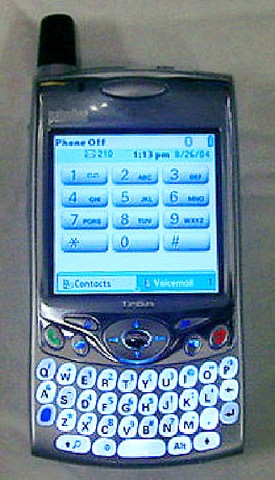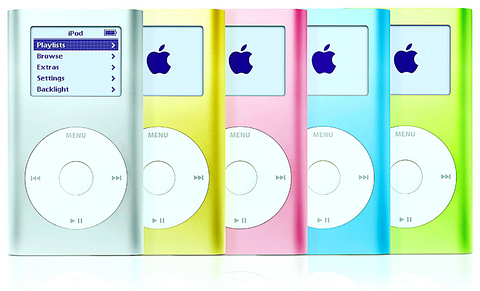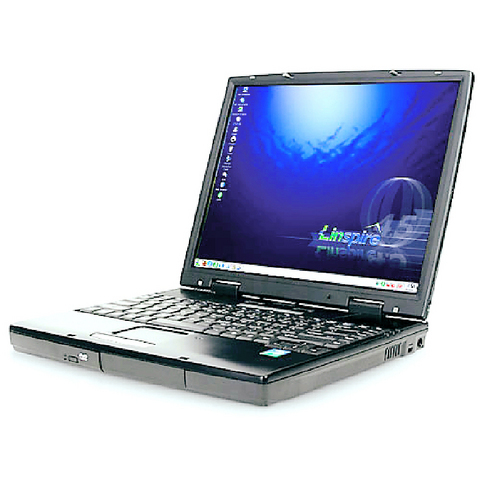With the year's end comes the traditional sleigh-full of "best of" news pieces covering all variety of subjects. Our monthly technology review annually offers the same, but this is more of a technology "milestones" of the year -- a quick look at some of the gadgets and gismos and technologies that have touched our lives and may change our lifestyles.
My pick for gadget of the year would have to be Apple's iPod and iPod mini. It didn't come out this year, but by the beginning of December more than 9 million iPods were sold and most industry-watchers believed that number was going to far exceed 10 million by Christmas morning. What's more, these sleek devices have sparked a war among electronics manufacturers and rightfully had many of them rethinking the clunky space-junk design of many consumer electronics products. People are willing to pay more for wearable devices that don't look like something of Battlestar Galactica. Soon enough, we won't necessarily pay a premium for elegant design as manufacturers compete for the space in our pockets.

But the real revolution Apple has created isn't in the way we carry music, but the way we purchase it. Apple announced earlier this month that their iTunes music store customers have now downloaded over 200 million songs (They were at the 150 million-song mark in mid-October!). Some industry watchers have gone so far to say that if the company's star continues rising at its current rate, it may well sell 1 billion songs by the end of next year.

The company refuses to say how many users iTunes has, but the numbers are still significant. Apple has changed the way we buy music and, for musicians whose catalogs are available for download, significantly reduced the amount of money lost to pirating. My prediction is that, as bit rates gain speed, the next business to move to the Internet will be the neighborhood video store. (Hello, Blockbuster?)
Speaking of downloading from the Internet, 2004 was surely the year the world became wireless, or at least began making huge strides toward becoming so.

While there's no data available as to exactly how much area became covered with Wi-Fi networks this year, based on sales of Wi-Fi hubs, it's believed that overall coverage has grown exponentially more than any previous year. Airports, hotels, cafes and now even homes are going wireless as the price of the technology has dropped. More significantly, whole cities are planning wireless access areas (including Taipei's Shinyi District). Where not long ago people would have to search for a wireless access environment, they're now more likely to be sitting in one already.
As the virtual world has expanded, so has the world of materials. A Virginia-based company called NanoSonic has solved what could be described as the materials chemists' version of the riddle of the Sphinx: What material can conduct electricity like a metal, but stretch like a rubber band?
The answer, of course, is Metal Rubber, a filmy brown material that can extend to three times its original length and conduct electricity as well as a bar of steel. Already Lockheed Martin is using it to create airplane wings with more flex, but scientists believe it could have applications in medicine -- artificial muscles, for example, or more life-like prostheses. On a larger scale consumer basis, we may begin seeing cellphones and laptops that bounce when dropped.
A feature like that would come in handy if you dropped your NT$16,065 Treo 650, my pick for the phone of year. Though it's not a popular model in Taiwan, it's manufactured here by a company called High Tech Computer. In other parts of the world, though, it's taken the bull by the horns, combining a personal digital assistant, telephone, camera and more. The 650, which runs on a Palm operating system, is the upgrade of the Treo 600. But as upgrades go, the 650 is twice the phone the 600 was: twice the screen resolution (320 x 320 from 160 x 160), twice the speed (312Mhz from 144Mhz), and more than twice the photo resolution (1.2 megapixels from 0.3 megapixels).
The 650 also incorporates Bluetooth to make it a truer networking device, though Wi-Fi is noticeably absent. Still, it raises the bar on PDA-cellphone technology, setting the standard by which other manufacturers will inevitably compare their own products.
Already not far behind is another Taiwan-manufactured phone, Benq's P50, which, because it's lighter and smaller than the Treo and foregoes the nubby antenna, would win on style points. But the phone is still too new and untested to give it top honors here.
While it may not be a great feat of technology, it remains a milestone: Wal-Mart Corp has begun offering the Balance Notebook computer, a Linux-based laptop selling at NT$16,000. For that price you get a 14.1" LCD screen, VIA C3 processor, 128MB of RAM, a 30GB hard drive and CD-ROM. No bells and whistles, to be sure, but enough to run most productivity software, Web browsing, e-mail and the like. Kudos to Wal-Mart for saving consumers NT$3,213 by installing Linux.

This is the year that the demographic crisis will begin to impact people’s lives. This will create pressures on treatment and hiring of foreigners. Regardless of whatever technological breakthroughs happen, the real value will come from digesting and productively applying existing technologies in new and creative ways. INTRODUCING BASIC SERVICES BREAKDOWNS At some point soon, we will begin to witness a breakdown in basic services. Initially, it will be limited and sporadic, but the frequency and newsworthiness of the incidents will only continue to accelerate dramatically in the coming years. Here in central Taiwan, many basic services are severely understaffed, and

Jan. 5 to Jan. 11 Of the more than 3,000km of sugar railway that once criss-crossed central and southern Taiwan, just 16.1km remain in operation today. By the time Dafydd Fell began photographing the network in earnest in 1994, it was already well past its heyday. The system had been significantly cut back, leaving behind abandoned stations, rusting rolling stock and crumbling facilities. This reduction continued during the five years of his documentation, adding urgency to his task. As passenger services had already ceased by then, Fell had to wait for the sugarcane harvest season each year, which typically ran from

It is a soulful folk song, filled with feeling and history: A love-stricken young man tells God about his hopes and dreams of happiness. Generations of Uighurs, the Turkic ethnic minority in China’s Xinjiang region, have played it at parties and weddings. But today, if they download it, play it or share it online, they risk ending up in prison. Besh pede, a popular Uighur folk ballad, is among dozens of Uighur-language songs that have been deemed “problematic” by Xinjiang authorities, according to a recording of a meeting held by police and other local officials in the historic city of Kashgar in

It’s a good thing that 2025 is over. Yes, I fully expect we will look back on the year with nostalgia, once we have experienced this year and 2027. Traditionally at New Years much discourse is devoted to discussing what happened the previous year. Let’s have a look at what didn’t happen. Many bad things did not happen. The People’s Republic of China (PRC) did not attack Taiwan. We didn’t have a massive, destructive earthquake or drought. We didn’t have a major human pandemic. No widespread unemployment or other destructive social events. Nothing serious was done about Taiwan’s swelling birth rate catastrophe.